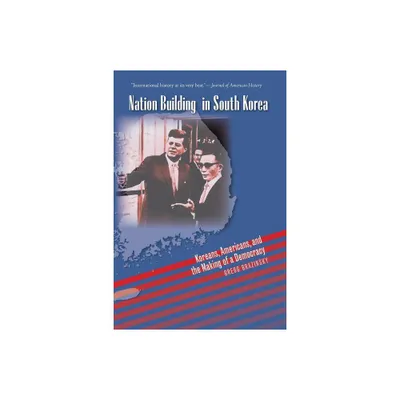Home
The State's Sexuality: Prostitution and Postcolonial Nation Building South Korea
Loading Inventory...
Barnes and Noble
The State's Sexuality: Prostitution and Postcolonial Nation Building South Korea
Current price: $95.00


Barnes and Noble
The State's Sexuality: Prostitution and Postcolonial Nation Building South Korea
Current price: $95.00
Loading Inventory...
Size: Hardcover
*Product Information may vary - to confirm product availability, pricing, and additional information please contact Barnes and Noble
The State's Sexuality
uncovers how the lives and work of women engaged in prostitution, long considered the most abased members of society, have been strategically intertwined with the lofty purpose of building South Korea's postcolonial nation-state. Through a complicated, contradictory patchwork of laws and regulations, which Park Jeong-Mi conceptualizes as a "toleration-regulation regime," the South Korean state did not merely exclude sex workers from ordinary citizenship; it also mobilized them for national security, national development, and the making of a gendered citizenry. In the process, the newly independent state was constructed, augmented, and consolidated. Sex workers often protested such draconian policies and sometimes utilized state apparatuses to get recognition as citizens. Based on expansive, meticulous archival research and sophisticated interpretation of historical records and women's voices, Park rewrites the dynamic history of South Korea from 1945 to the present through the lens of prostitution.
uncovers how the lives and work of women engaged in prostitution, long considered the most abased members of society, have been strategically intertwined with the lofty purpose of building South Korea's postcolonial nation-state. Through a complicated, contradictory patchwork of laws and regulations, which Park Jeong-Mi conceptualizes as a "toleration-regulation regime," the South Korean state did not merely exclude sex workers from ordinary citizenship; it also mobilized them for national security, national development, and the making of a gendered citizenry. In the process, the newly independent state was constructed, augmented, and consolidated. Sex workers often protested such draconian policies and sometimes utilized state apparatuses to get recognition as citizens. Based on expansive, meticulous archival research and sophisticated interpretation of historical records and women's voices, Park rewrites the dynamic history of South Korea from 1945 to the present through the lens of prostitution.

















